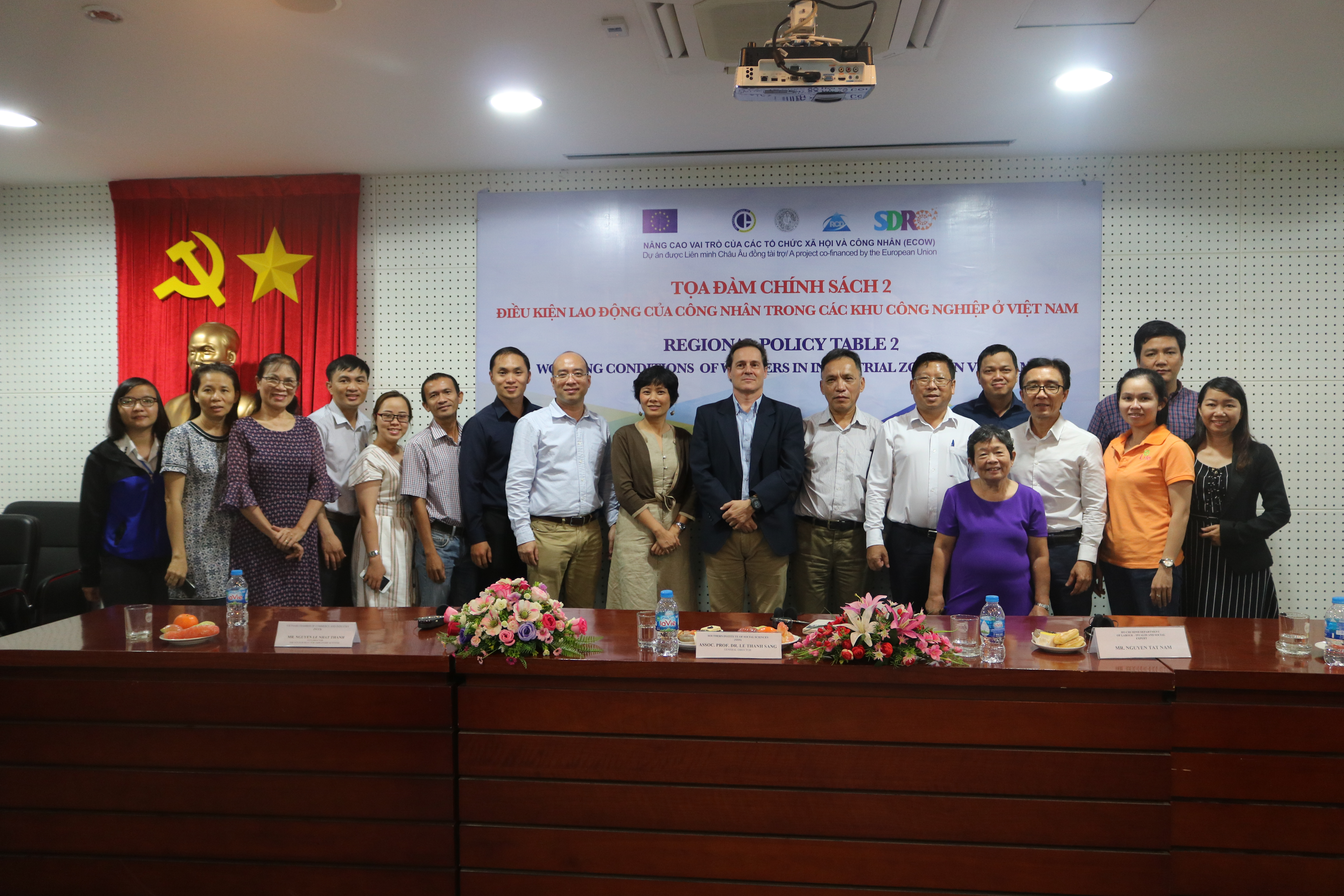In his opening remarks, Assoc. Prof. Dr. Nguyen An Ha, Project Coordinator, emphasizes: “According to the research findings, workers in garment and electronics sectors are still facing many difficulties in their work and lives. They depend profoundly on overtime work to improve their income while their savings are still low, despite the fact that the minimum wage has been increased considerably during the past few years. Majority of them are migrants and hard to afford their own houses in their working places due to low income. Workers with family face various obstacles, particularly in taking care their children who are often sent back to their village to live and study. Especially, under the impacts of Covid-19, workers have to cope with more challenges in their working conditions. Thus, working together to propose solutions for improving workers’ quality of lives is significant in this situation”.
“The policy roundtable discussion today on working conditions of workers in industrial zones, is very timely, particularly in the context of COVID 19 pandemic. The evidence-based research and dynamic exchanges at the event once again reaffirms that the workers are encountering double challenges of securing their job in uncertain times whilst continue demanding for protecting their rights. The roundtable today also touches upon an important aspect of the role of CSOs in supporting workers in industrial zones. These topics are particular important and highly relevant in views of implementation of the EVFTA which came into force just a few months ago”. said Mr Jesús Lavina, Deputy Head of Cooperation, EU Delegation to Vietnam.

The policy roundtable attracts more than 50 participants from Department of Labour, Invalids and Social Affairs and Confederation of labours of provinces in the South, Branch of Vietnam Chamber of Commerce and Industry in Ho Chi Minh city, labour-related civil society organizations, research institutes, universities and the press.
Reporter.







